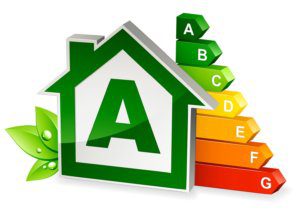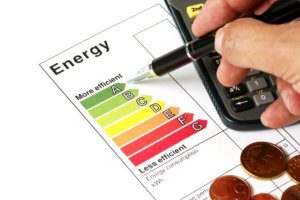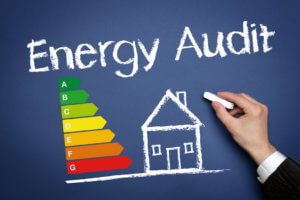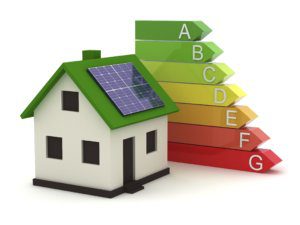
The European Union (EU) has selected Laura Garbenciute its representative in the supervisory board of the Energy Efficiency Fund of Ukraine, thus, completing the creation of the board. According to a report of the press service of the Regional Development, Construction, Housing and Utilities Economy Ministry, earlier Garbenciute worked in PricewaterhouseCoopers and has considerable experience in the audit sphere.
As reported, two representatives from the government, one representative from international donors and two independent representatives are members of the supervisory board of the Energy Efficiency Fund. They are elected for five years. The same person is restricted to three terms of office and may be selected only at a tender.
The Cabinet of Ministers of Ukraine selected its representatives in the supervisory board of the Energy Efficiency Fund: Deputy Finance Minister Yuriy Heletei and Director of the life-support systems economy department of the Regional Development, Construction, Housing and Utilities Economy Ministry Natalia Khotsianovska.
Winners of the tender to select independent members of the supervisory board of the Energy Efficiency Fund are Andrzej Rajkiewicz (Poland) and Yulia Sabatiuk (Ukraine).

The supervisory board of the Energy Efficiency Fund has elected Andrzej Rajkiewicz its head, the press service of Deputy Prime Minister, Regional Development, Construction, Housing and Utilities Economy Minister of Ukraine Hennadiy Zubko has reported.
“Rajkiewicz was elected head of the supervisory board of the Energy Efficiency Fund – a person who has extensive experience in energy efficiency in Poland and other European countries. This decision was made at the first meeting of the fund’s supervisory board on December 17,” Zubko said.
According to him, the meeting also approved the rules of procedure for the meetings of the supervisory board, determined the procedure for selecting members of the directorate and the head of the internal audit unit, approved the action plan for 2018 and the first quarter of 2019. In addition, the announcement of the tender to select management is expected.
As reported, four members of the fund’s supervisory board have already been selected, the last one is expected to be defined – a representative from the European Union.
The Cabinet of Ministers of Ukraine selected its representatives in the supervisory board of the Energy Efficiency Fund: Deputy Finance Minister Yuriy Heletei and Director of the life-support systems economy department of the Regional Development, Construction, Housing and Utilities Economy Ministry Natalia Khotsianovska.
Winners of the tender to select independent members of the supervisory board of the Energy Efficiency Fund are Andrzej Rajkiewicz Миралинкс (Poland) and Yulia Sabatiuk (Ukraine).
Two representatives from the government, one representative from international donors and two independent representatives will be members of the supervisory board of the Energy Efficiency Fund. They are elected for five years.
ANDRZEJ RAJKIEWICZ, ENERGY EFFICIENCY, FUND, HEAD, POLAND, SUPERVISORY BOARD

The Cabinet of Ministers has approved a draft agreement on the European Union’s providing technical assistance to Ukraine in the amount EUR 54 million to finance the EE4U-II energy efficiency support program, and also approved draft agreements on two other programs. According to the Ministry of Economic Development and Trade, the Cabinet of Ministers also approved a draft agreement on financing the “Program of Expanding Contacts between People: the House of Europe” between Ukraine and the European Commission with a budget of EUR18 million for eight years.
The aim of the program is to attract technical assistance from the EU to establish contacts, professional relations, cultural exchange between citizens of the EU and Ukraine.
In particular, the matter concerns organizing short-term professional internships in EU countries, supporting the House of Europe information center, expanding opportunities for Ukraine to participate in the Erasmus+ program.
In addition, the program assumes reimbursement of half the amount of Ukraine’s contributions to the Creative Europe program for 2018-2020.
In addition, the government approved a draft agreement on financing the technical cooperation program for 2018 with the budget of EUR 37 million to support the implementation of the Association Agreement on the deep and comprehensive free trade area, the Ministry of Economic Development and Trade reports.

Some 66 enterprises have been selected to participate in the Energy Efficiency Project of GIZ (Deutsche Gesellschaft für Internationale Zusammenarbeit GmbH) and Economic Development and Trade Ministry of Ukraine. “A total of 66 enterprises have already been selected, which will receive technical support to identify and implement pilot energy efficiency projects,” First Deputy Economic Development and Trade Minister Maksym Nefyodov wrote.
According to him, among them 19 enterprises of the baking industry, 15 – from the dairy sector, 19 – machine building, as well as 11 enterprises for the production of nonmetallic building materials and two enterprises from other industries.
The list includes, among others, Kyivkhlib, Kyivsky BKK, Kupiansk Canned Milk Factory, Kaniv branch of the Cheese Club, Starokostiantynivsky Dairy Plant, Zhytomyr Butter Plant, EthnoProduct, JV Vitmark-Ukraine, Galca Ltd, Dnipropolymermash, Corum Druzhkivka Machine-Building Plant, Kharkiv Machine-Building Plant FED, IC Pozhmashina, Umanfermmash and OLIS.
In addition, the Kharkiv Tile Factory, Kerameya, the Kyiv Combine of the Construction Industry, the two branches of the SBK, the Tavriya Construction Company, the Temp Plant and the Zhytomyr Roofing and Insulating Materials Plant were selected.
Chairman of the State Agency for Energy Efficiency and Energy Saving Serhiy Savchuk said, commenting on the project on the agency’s website, that as part of the implementation of the Energy Efficiency Directive 2012/27/EU, one of the articles of which foreseen energy efficiency audit for large enterprises once in four years or the switch to the energy efficiency management, a bill on energy efficiency has been drawn up.
According to a posting on the website of GIZ, the project to advice enterprises in the energy efficiency sphere was started in 2017 and will last until 2021. GIZ said that the energy efficiency potential, especially for small- and medium-sized enterprises, is 30-50%.

Ukraine has started issuing energy efficiency certificates for building with defining the class of energy efficiency after an audit, the press service of the Regional Development, Construction, Housing and Utilities Economy Ministry of Ukraine has reported. “The certificate is a necessary tool for the operation of homeowner associations and the Energy Efficiency Fund,” Regional Development, Construction, Housing and Utilities Economy Minister Hennadiy Zubko said.
According to the press service, the energy efficiency certificate allows assessing the energy efficiency of a building and the effect of the implemented measures, and also contains recommendations on the next steps.
“Today [on September 11] we launch the energy auditors market. We have already signed a memorandum with 21 universities to create commissions for the certification of energy auditors. The second important area for us is to launch jointly with the Ministry of Education the “energy auditor” program of study in higher educational institutions. There is an agreement with [Germany’s] GIZ on conducting additional trainings for certified energy auditors not only in Ukraine, but also abroad,” Zubko added.
He also said that the ministry is waiting for the adoption of the energy efficiency bill that will create tools and regulations for more efficient energy consumption, not only in the private sector, but also in industry, aiming to reduce energy consumption in the transport and energy sectors.

The State Agency for Energy Efficiency and Energy Saving of Ukraine seeks to launch the “green” bonds market in Ukraine in two years to attract financing to energy efficiency projects, Agency Head Serhiy Savchuk has said.
“Today, the market of green bonds is developing rapidly in the world. Ukraine lacks the legislation. There is “appetite” of Ukrainian and foreign investors to buy bonds. The main thing is that the principles and procedures of the “green” bonds market comply with international standards. We will implement them in our legislation. We will start the development of the “green” bond market. I think it will take two years,” Savchuk said at a press conference on Thursday.
According to him, the relevant changes are contained in the bill on the capital market and regulated markets, developed by the agency in cooperation with the National Commission for Securities and the Stock Market.
Savchuk recalled that the “green” bonds are a debt financial instrument, the proceeds from the sale of which are used to finance “green” projects.
According to the head of the energy efficiency agency, “green” bonds can be issued by corporations, international banks, the state or municipalities.